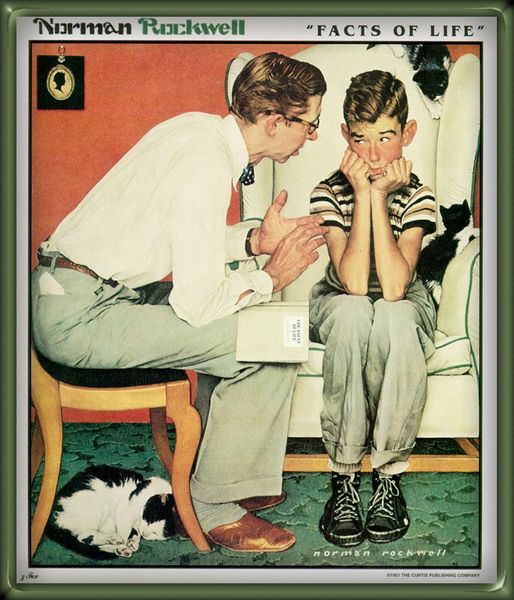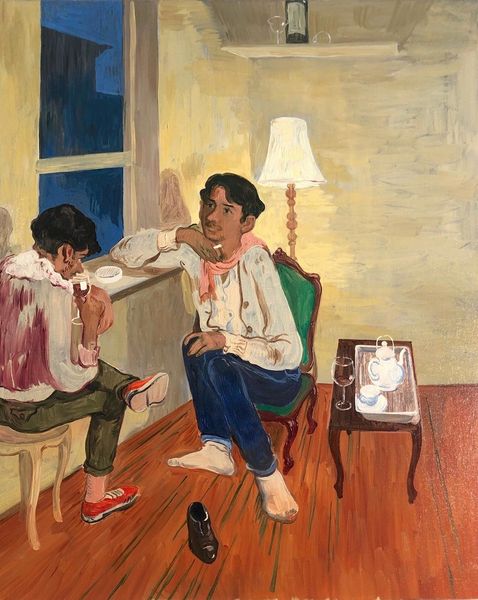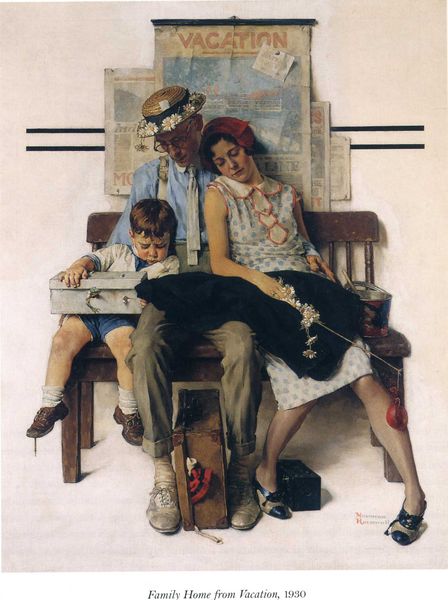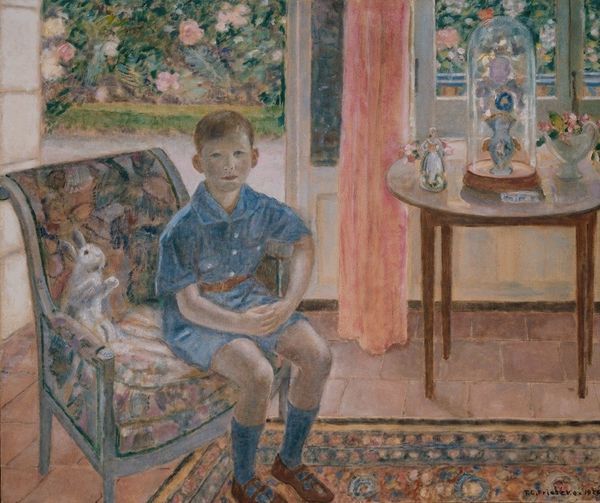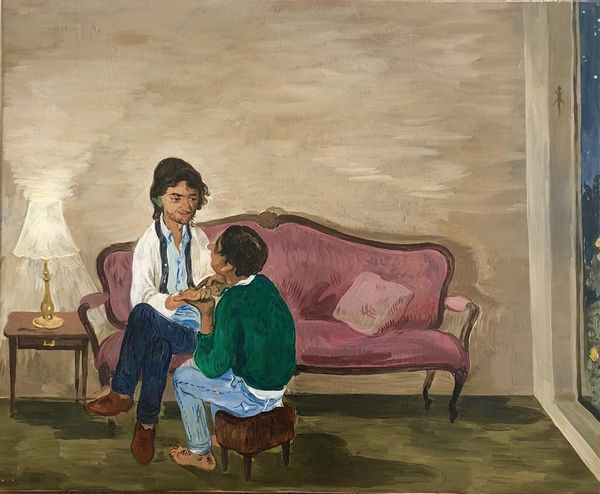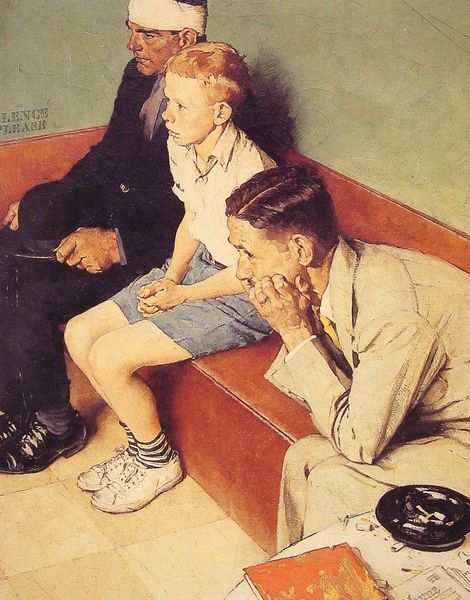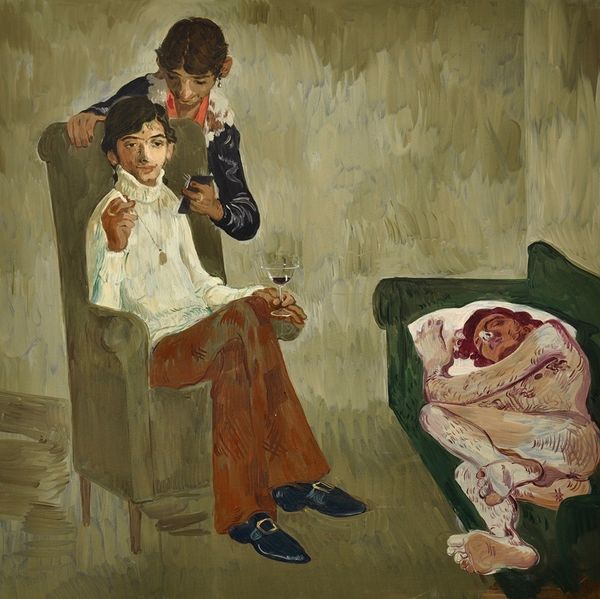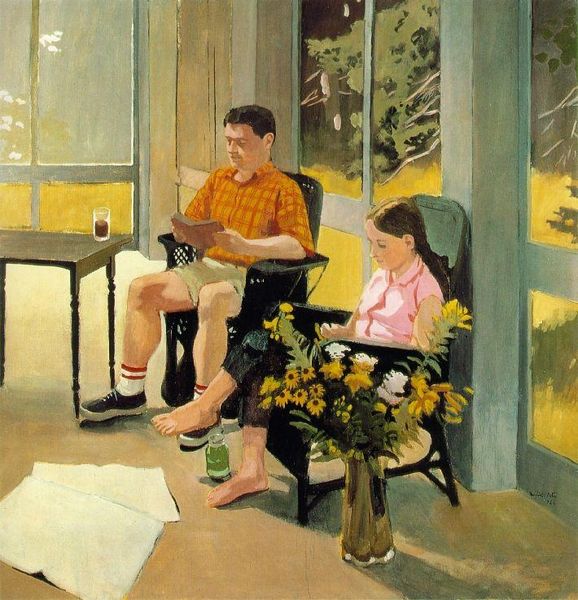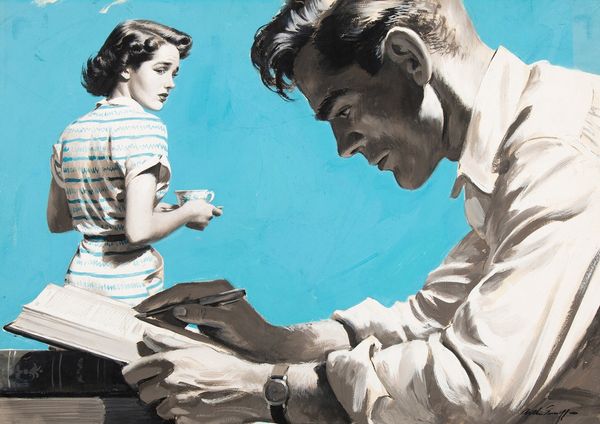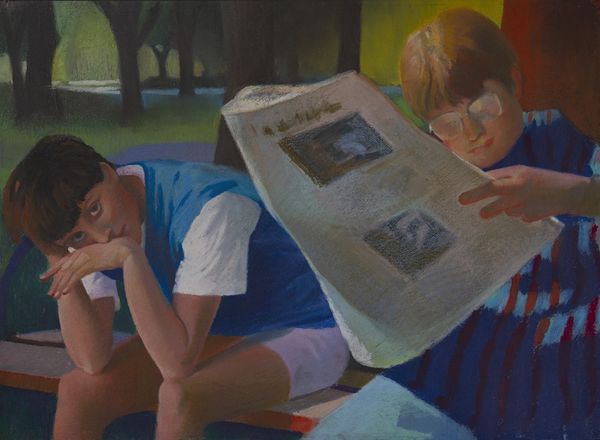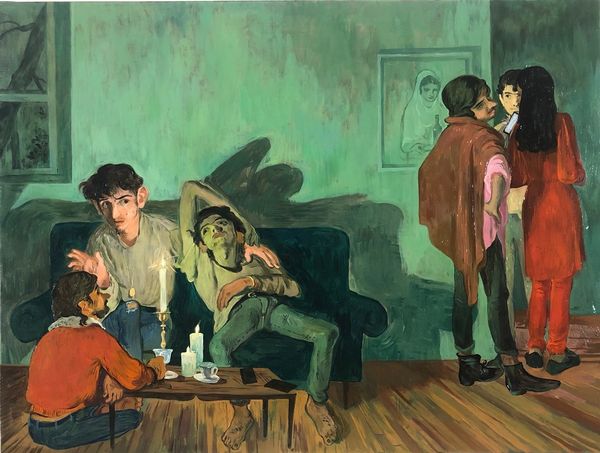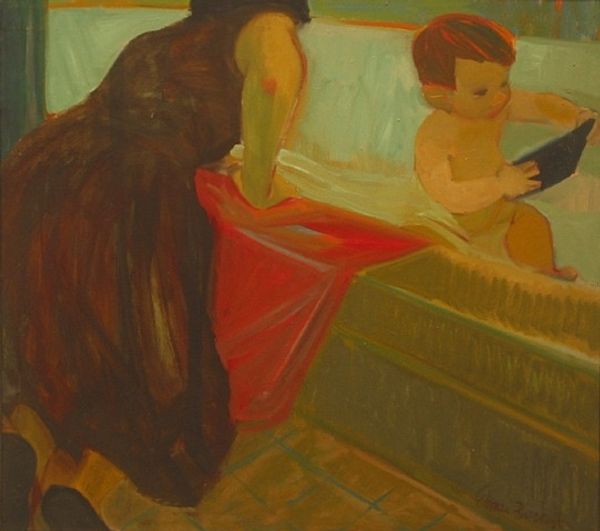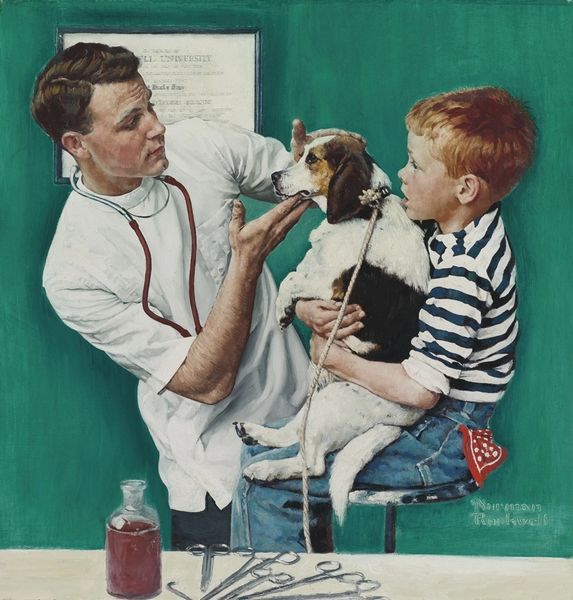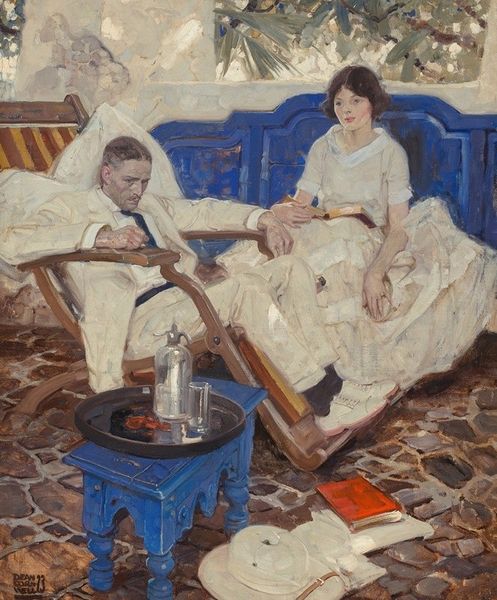
oil-paint
#
portrait
#
narrative-art
#
oil-paint
#
oil painting
#
child
#
male-portraits
#
naive art
#
genre-painting
#
modernism
#
realism
Dimensions: 86.4 x 111.8 cm
Copyright: Norman Rockwell,Fair Use
Editor: Here we have what appears to be Norman Rockwell’s oil painting, “The Facts of Life.” There’s an almost palpable tension in the scene – a father seems to be in the middle of a difficult conversation with his son, who is looking rather upset. What social dynamics do you see Rockwell capturing here? Curator: Rockwell’s "The Facts of Life" gives us an entry point to discuss social constructs and power dynamics. We see a moment of presumed "wisdom" being passed from father to son. But let’s consider: What truths are privileged in this image? Whose perspectives are centered? What does the artist choose *not* to show us? Editor: That's an interesting angle. I initially saw it just as a kind of sentimental, maybe idealized, family interaction. But I get what you mean about whose story we're *not* seeing. Curator: Exactly. We must consider how gender roles, class, and even race, which is subtly present through its very absence, shape the narrative. Are we looking at a reinforcement of patriarchal norms? Or is there room for disruption within the scene itself? Note the boy's averted gaze and discomfort. What emotions do we project onto him and why? Editor: It challenges the assumed wholesomeness of Rockwell's images, doesn't it? This discomfort could be read as a rejection, in some way, of the expected masculine ideal? Curator: Precisely. And the composition itself-- the boy physically lower than the father— reinforces social hierarchy. It begs the question: How can we unpack seemingly “simple” images to reveal more complex commentaries on society? Editor: This has made me see Rockwell's work in a new light. I realize I’d been viewing it through a very narrow lens. Curator: Art offers itself to a multitude of interpretations; viewing through critical theory creates a richness and layers of meaning that weren't apparent before.
Comments
No comments
Be the first to comment and join the conversation on the ultimate creative platform.
